Alarm Systems For The Home
How Do They Work?
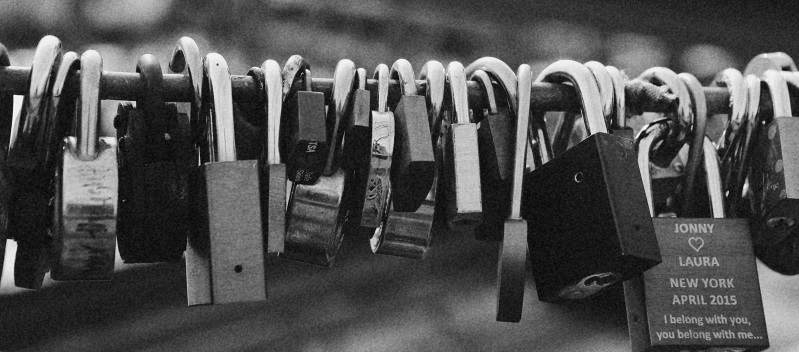
The objective of an alarm system is to deter or prevent access to your home. Every home has multiple entry points that need to be protected. The usual entry points to a house are windows and doors. If you have a one level home, then ALL windows and doors are possible entry points. In a two story house, most of the upstairs windows cannot be opened unless one gets up there with a ladder. But there are exceptions like windows above a patio.
In order to protect those entry points, we need to have window and door sensors. Once a burglar gets passed the first line of defense, motion detectors kick in. If an entry point is breached, we need to be 'alarmed', and that's exactly what an alarm security system does.
The Basics of Security Systems
What do we need for a security system?
The basic alarm system parts are:
- Door and Window Sensors
- Motion Sensors
- Siren or Alarm that is very loud
- Control Panel
How do the security system parts work?
Door and Window Sensors
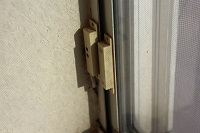
The sensors are two parts connected to each other. Like a door sensor, one part is either built into the door frame and the other one is built into the door. When the door is closed, they are electrically connected. Once that door is opened, the connection is gone and the alarm system senses something is wrong. It's like a vacuum cleaner cable connected to an outlet. Once you pull the plug, that vacuum cleaner stops.
With window sensors, usually one part is attached to the window and the other one to the window frame. Once the window is opened, the alarm will go off.
Motion Sensors
As indicated by the name, these sensors detect any motion within a particular range. Once they are 'armed' and something moves across the detection range, the alarm will go off. Imagine you are sleepwalking inside the house passing by a motion sensor and that alarm goes off. You will wake up in a hurry. But not to worry, most if not all security systems have a so called 'bypass', which means that motion detectors are not armed.
Siren or Alarm
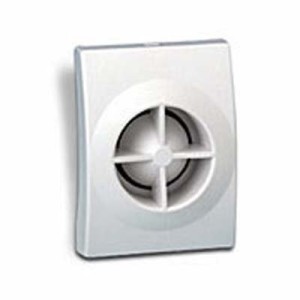
These are very loud and if you are in the house and set off the alarm by accident, believe me, you will scramble to disarm the system. I venture to say that everybody with an alarm system has made that experience. Happened to me when my wife armed the system without letting me know, and I had to let the dog out through the backyard door. Ohh boy!
Any intruder will run to get away, because even if you are not at home, neighbors will notice the alarm.
Control Panel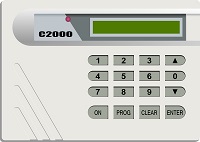
The brain of the security system. The parts of the system are connected to the control panel. If a breach is detected, it will sound the alarm. Entering a secret number at the control panel will disarm the system.
What Happens When The Alarm goes off?

If the system is monitored by a security company, appropriate steps will be taken to protect you. First step is usually to call you at the house, even if you already disarmed the alarm. If you are not at home, they will call your secondary phone number like your cell phone. If your protection plan includes alarming the police, police officers will check your house and its surroundings for intruders.
When using a non-monitored system, it is up to you to call the police or other emergency services.
Final Thoughts
Statistically it is said that homes without a security system are more likely to be burglarized than those without. Don't wait until it's too late. Install a security system before your home is burglarized. Home Insurances may offer discounts for homes with alarm systems. It's also worth mentioning that after a break-in with excessive loss of items, insurances may insist to have a security system installed.
What is Next?
There are many more aspect to security systems which I will write about in future blogs. Just to name a few: What actually happens when the alarm goes off? Should the installation be done by professionals? How To DIY Security Systems? Cellular versus landline security! Hardwired or wireless sensors?
I will also review different security systems and offer advice on individual home security parts. In addition, I will introduce you to a great tool that I came up with that will help you to decide what alarm system is the best for you.
Thanks for reading and leave a comment. Enjoy your alarm system!
Rudi

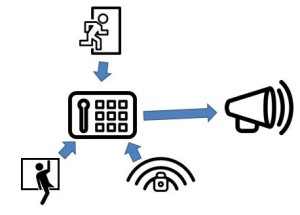
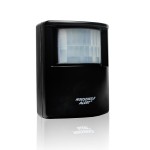



2 thoughts on “”
Very interesting article! Thank you. I’ve been considering alarm system installation and the idea of installing it myself sounds nice. I guess, I may ask you a question- do cellular systems have some sort of backup in case if cellular tower fails?
Thanks again.
That’s a great question! Most security systems that I have reviewed are based on cellular communication, yet some older ones do use landlines. I have not seen a security system that utilizes both ways of communication, cellular, and landline. So, if a cellular tower goes down and your home is too far away from the next available cellular tower, your distress signal will not go out. Should security systems have a built-in redundancy? Yeah Kirill, you may have started a new security system trend: Redundant Communication.
Rudi